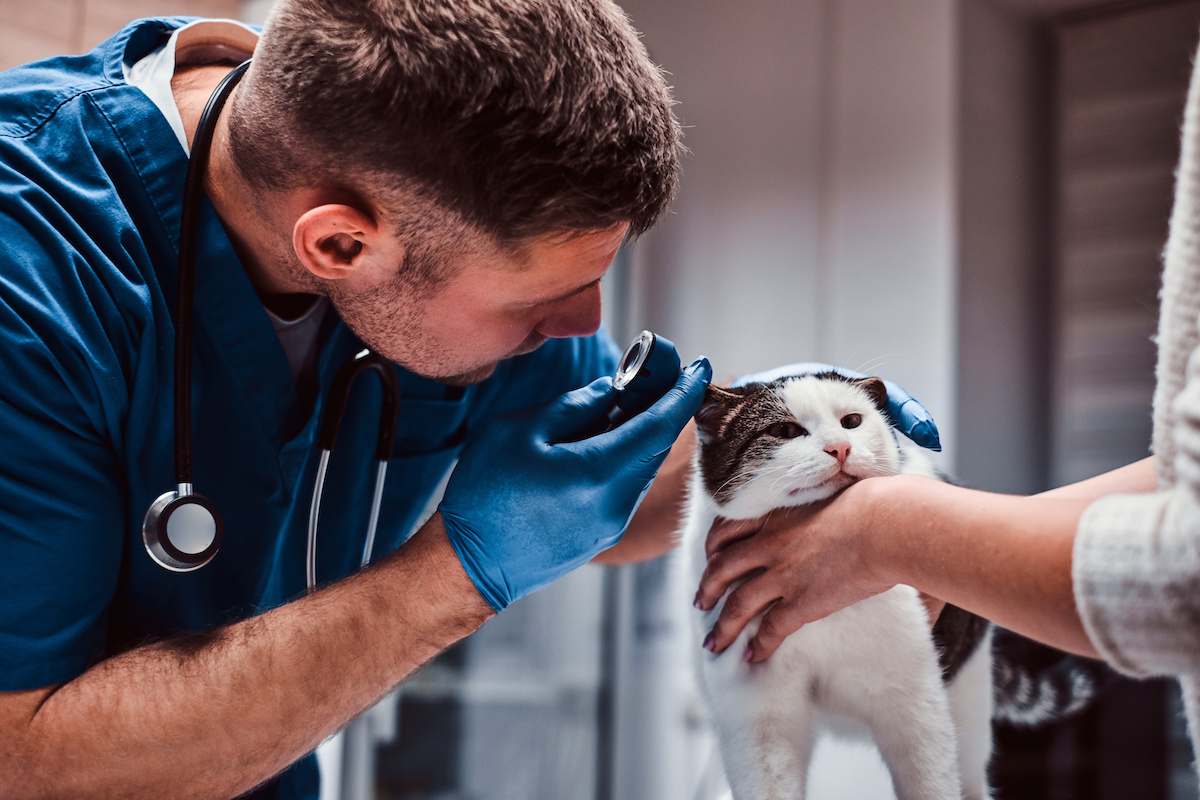Vaccination Guidelines From Your Relied On Vet
Vaccination guidelines provided by your trusted vet play a vital role in securing your pet's wellness and well-being. Furthermore, addressing typical misconceptions bordering vaccines can even more boost animal proprietors' confidence in these preventative measures.

Significance of Vaccinations
Inoculations play a critical function in protecting animals against a series of avoidable illness. By promoting the immune system to identify and deal with certain microorganisms, vaccines substantially lower the incidence of infectious conditions that can affect an animal's health and long life. Not only do inoculations shield private animals, yet they likewise add to herd resistance, thus reducing the total prevalence of conditions in the family pet population.
Timely inoculations assist to mitigate the spread of conditions such as rabies, parvovirus, and distemper, which can have serious effects for both people and pets. In addition, vaccinations are often a need for boarding facilities, brushing solutions, and canine parks, making them essential for those who desire to socialize their pet dogs.

Core Vaccinations for Animals
While the particular vaccination requirements of animals can vary based upon individual elements, core vaccines are globally suggested to safeguard against one of the most significant and typical illness (Veterinarian Enterprise). Core injections are those deemed vital for all family pets, regardless of their lifestyle or geographical location, as they guard versus potentially fatal and highly transmittable diseases
For pet dogs, the core vaccines consist of those for canine distemper, parvovirus, adenovirus (liver disease), and rabies. Adenovirus can result in liver disease, while rabies is a zoonotic condition that poses a risk to both humans and family pets.
In felines, core injections incorporate feline panleukopenia, feline calicivirus, feline herpesvirus (rhinotracheitis), and rabies. Feline panleukopenia is an extremely contagious viral illness that influences the body immune system and intestines. Calicivirus and herpesvirus are major contributors to upper respiratory system infections in pet cats, while rabies continues to be a crucial issue for public health.
Talk to your veterinarian to ensure your family pets obtain their core vaccinations on time.
Non-Core Vaccines Explained
Non-core injections are tailored to attend to details threats connected with an animal's lifestyle, atmosphere, and direct exposure to specific diseases. Unlike core vaccinations, which are widely recommended for all family pets, non-core vaccinations are thought about based upon private scenarios. These injections are particularly vital for animals that may experience special pathogens due to their geographical area, travel habits, or activities.
Examples of non-core vaccinations consist of those for Bordetella bronchiseptica, which is linked to kennel cough, and Lyme illness, triggered by ticks. Pet dogs that frequently engage with various other animals, such as those in boarding facilities, pet parks, or brushing atmospheres, might gain from Bordetella inoculation. Likewise, if you stay in a location where Lyme disease prevails, immunizing against this disease can be a prudent selection for outdoor-loving pet dogs.
Various other non-core vaccinations might visit site consist of those for leptospirosis, canine flu, and feline leukemia, depending on the details danger variables present. It is vital to have a detailed discussion with your veterinarian concerning your pet's way of living and the possible need for these injections, making sure a customized vaccination method that finest shields your furry pal.
Inoculation Set Up Overview

As pets develop, it is essential to follow the advised booster inoculations. Emergency Vet. For grown-up pets, core vaccines are usually offered each to 3 years, depending on the details injection and neighborhood regulations. Non-core injections may be encouraged based upon way of living factors and regional disease prevalence, requiring a tailored technique
Routine vet examinations are critical for upgrading inoculation timetables. Your vet can give advice on one of the most appropriate immunizations for your pet, factoring in age, health status, and ecological threats. By remaining aggressive and notified, family pet owners can ensure their furry companions receive prompt and reliable inoculations, consequently securing their health and wellness and wellness throughout their lives.
Typical Misconceptions Concerning Vaccinations
Misunderstandings about pet inoculations can bring about complication and reluctance amongst pet dog owners concerning the immunization procedure. One common misconception is that injections are unneeded for interior family pets. While it holds true that indoor pets face reduced dangers, they are not completely unsusceptible to illness, as pathogens can be presented with various methods, including human clothing and various other animals.
Another misconception is that vaccinations can trigger the diseases they intend to avoid. Actually, the majority of vaccines have inactivated or undermined microorganisms, which can not create illness in healthy and balanced animals. Some pet official website owners additionally believe that their pet dogs ought to not be immunized if they are already healthy and balanced; however, vaccinations are a proactive procedure that helps stop the onset of health problem.
In addition, many pet dog proprietors fear that injections will lead to lasting health and wellness problems. The advantages of inoculation-- protecting pets from possibly life-threatening illness-- much exceed the threats.
Verdict
In summary, adherence to vaccination standards is essential for ensuring the health and wellness and longevity of pet dogs. Dispelling usual myths bordering inoculations even more enhances the significance of educated decision-making in animal treatment.
Not only do inoculations protect private pets, but they additionally contribute to herd immunity, therefore decreasing the total prevalence of illness in the pet populace.
Mistaken beliefs about animal inoculations can lead to confusion and unwillingness home amongst animal proprietors regarding the immunization procedure. While it's real that indoor family pets face lower threats, they are not completely immune to illness, as virus can be introduced with numerous means, consisting of human clothes and other family pets.
Some pet dog owners also believe that their family pets need to not be immunized if they are already healthy; nevertheless, inoculations are an aggressive action that helps avoid the beginning of illness.
The benefits of vaccination-- safeguarding family pets from possibly life-threatening diseases-- far outweigh the risks.